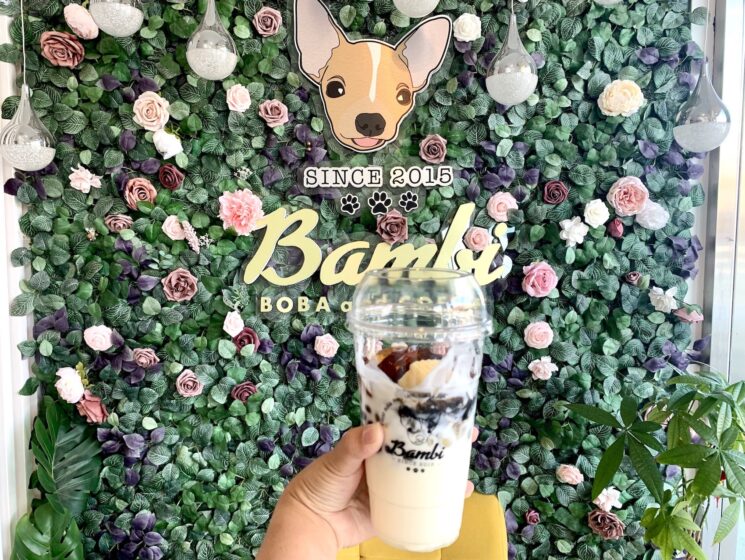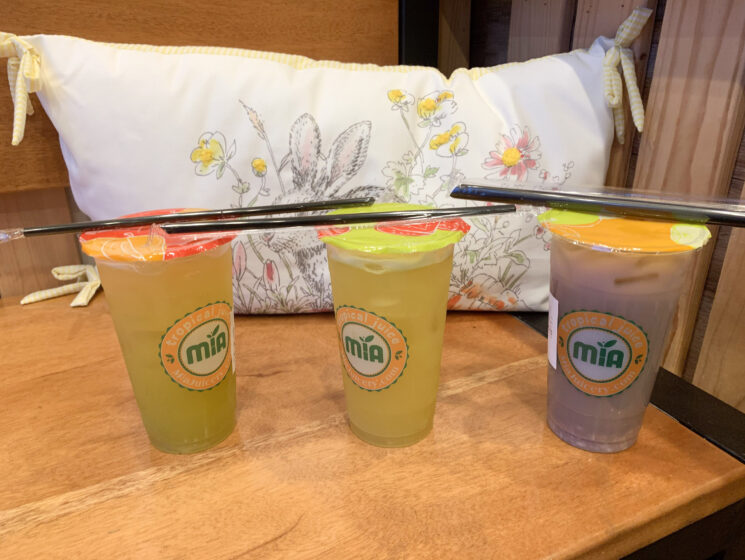By Vy Nguyen
Hi, my name is Vy. And I’m a boba addict.
The first time I had tried boba tea was the summer before my freshman year, and I had just moved from North Carolina. I went from seeing a couple of Starbucks between acres of farmland, to eyeing a boba shop, a juicery and more on every corner. The diversity was endless.
With boba tea, I saw it as the first step in some kind of rite of passage to becoming a Californian. Innocently, on a July afternoon, I stepped into R&B Tea in the square of Little Saigon.
The first taste was certainly not bad. I had a sweet tooth and slurping sugar-filled tea gave me boosts of dopamine; plus, I liked having a built-in chewy snack with my drink. However, I didn’t see boba tea as becoming my go-to obsession, as I saw many unique drinks and beverage shops worth supporting.
Hundreds of dollars spent at Boba Junkie later, I’ve found myself succumbing to the hype of boba. On the numerous car rides to the nearest boba place, I see the empty beverage stores next to the crowded tea shops, and shame creeps in.
It seems silly to claim that my addiction with boba has any consequence (other than on my blood glucose levels). Yet, as someone with fresh eyes to Orange County, I’ve never seen so many fresh flavors, cultural drinks and locally-owned beverage shops in one place.
But aside from the occasional Philz’ Coffee cup or smoothie, every student I see vies for boba as their go-to drink, leaving other stores with so much to offer half-deserted.
It’s completely understandable to love—and even be addicted to—boba. However, given boba’s mass success, I don’t think we would be hurting anyone if we expanded our palates with drinks from other cultures, while supporting neglected small businesses.
Bambi Boba & Coffee: Yogurt dầm

Okay, despite the name of this shop, I promise this article is not clickbait. In fact, I had discovered this hidden gem of a shop on another ill-driven binge for boba.
The second you step inside the store and are met by the store’s owners—a female entrepreneur and her daughter—the menu opens up in front of you as an avenue of new flavors.
As far as the eye can see are all different sorts of Vietnamese drinks, some of which I had never even heard of myself as a native Vietnamese. And one of their specialties is yogurt dầm.
Similar to Yakult drinks you may have had as a kid, the yogurt dầm is a Vietnamese smoothie that translates to “blended yogurt.” It has the smooth, velvety texture signature to a milky boba beverage, with a low-sugar spin to the recipe.
What makes the drink its own, and what makes Bambi Boba & Coffee as a whole, is their selection of toppings. Rainbow boba, cheese boba (boba made from Laughing Cow Cheese, a staple Vietnamese snack in my childhood), corn, herbal jelly, egg pudding, water chestnuts and my favorite, milk cubes—all made on the spot.
The yogurt drink is an underrated alternative that steals the silky flow of boba tea, while striking a dynamic balance of sour and sweet that you just don’t get from a standard cup of boba tea. This Vietnamese beverage is perfect for those still recovering from boba addictions, and want something reminiscent of their old favorites!
Mia Juicery: Sugarcane juice

Next on the list is another female-owned business, which has recently arrived on the food scene of Orange County. A unique shop all about sugarcane juice, also known as nước mía in Vietnamese.
Long before sugarcane gained global attention by corporations, it was the food of families, small farm owners and even those in ill health, as sugarcane was used as a kind of medicine. Now, sugarcane juice is making a comeback, headed by Southeast Asian family businesses such as Mia Juicery. Whether you go to the location in Fountain Valley or near Little Saigon, both have the personal touch of a family.
Mia Juicery’s owner and her staff of nieces, nephews and staff that become like family, personally adorn the shop for their customers, while hand making every order.
There are plenty of fun combinations—whether it be sugarcane coconut, sugarcane chia, sugarcane coffee, or pure sugarcane. With sugarcane’s distinctly natural sweetness, as the sugarcane was locally grown in Mia Juicery’s farm, the owner has no need to add any sugar. By its nature, juice gives you the antioxidants and energy you’re looking for, taking the place of a sugar high from brown sugar.
My personal recommendation? Try the sugarcane taro if you’re missing the milky taste of boba. Taro was one of my favorite desserts in Vietnam, but it is more widely known as being a flavor of boba tea itself. The subtle vanilla-like taste complements black tea in boba beverages nicely, so the Mia Taro can be a direct throwback to your go-to boba.
If you’re like me and need to keep your jaw busy between sips, the owner gives you the option to add in bits of taro, freshly cooked after you order, which delivers a burst of sweet, nutty and nostalgic with every crunch. To me, it tastes like home.
Juice is certainly a different taste from boba milk tea, but the Mia Taro juice ties it back to the subtly sweet flavor we are all missing in boba tea, and missing in our lives. Take up the adventure if you are willing to try something new!
Orange County has quickly gained a special place in my heart for the richness in culture and hidden gems of businesses, sprinkled not in huge franchises, but in cozy small shops owned by families, women and people of color. However, these cultures cannot be celebrated if we endorse only one kind of drink in our day-to-day life.
My list is certainly only a start and will continue to expand as I further explore the corners of Southern California. For now, I happily explore the corners of my new favorite beverage shops, which has gotten me out of my boba bubble and in love with the stories each drink reveals.





